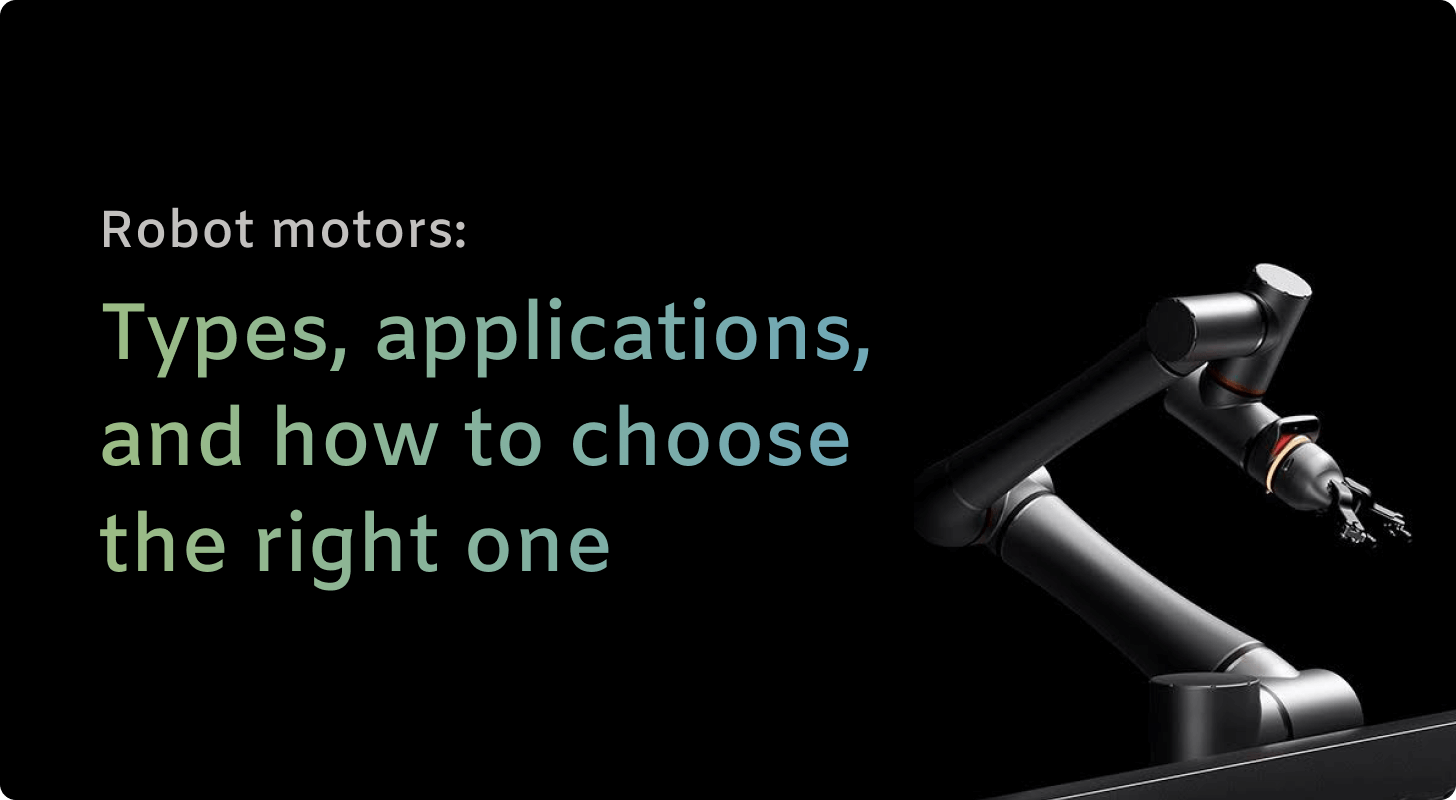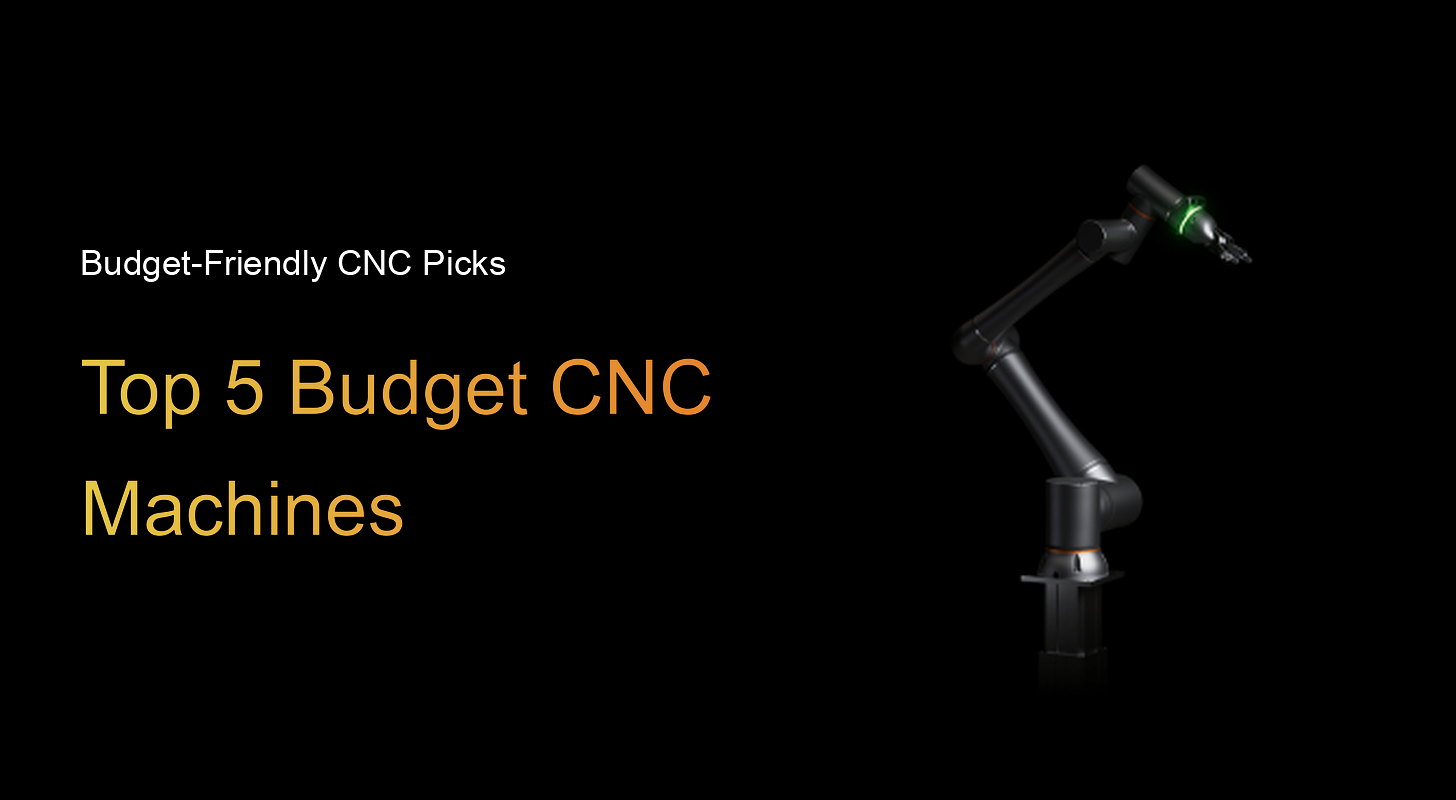Are you looking to get into automation? Denso robot arms are becoming a pretty solid choice.
But before you dive in, let's break down the Denso robot arm price so you know the score.
In this guide, we’ll chat about what makes Denso robots tick, what you can expect to pay, and where to find the best alternatives.
We'll cover:
- What is a Denso robot?
- What factors affect Denso robot arm prices?
- Differences in price across Denso robot arm models
- Buying used Denso robot arms: pros and cons
- Common cost challenges
- Alternatives and competitors in the same price range
Let’s get started.
What is a Denso robot?
Denso robots are known for being tough, fast, and super compact. They can handle a wide range of jobs, from delicate to heavy-duty.
Good things about Denso:
- Built to last: These bots are designed for precision and durability, which means they’ll not let you down in demanding environments.
- Small but tough: With a comparatively smaller footprint, Denso robots are perfect for factories where every inch counts.
- Extremely versatile: Whether you’re dealing with simple pick-and-place jobs or complex assembly lines, Denso’s got the variety for it.
Factors that affect a Denso robot arm price
Various factors affect the final cost, and understanding these can help you make a smarter buying decision.
The things you should keep in mind:
- Model and features: The specific model you choose will affect the price tag. Denso offers a range of robots with different features, from basic models to high-tech versions with advanced sensors and more flexibility.
- Application requirements: If your job requires a specialized robot — say, one with a higher payload capacity or extended reach — the cost will naturally go up. More complex jobs often need more sophisticated (and expensive) robots.
- Customization: Customizing a Denso robot arm to fit your exact needs can add to the price. This could include anything from specialized grippers to unique software integrations.
- New vs. used: Obviously, a brand-new Denso robot is going to cost more cash than a refurbished one. However, with used robots, you’ll need to weigh the savings against potential maintenance costs and reduced lifespan.
Types of Denso robot arms and their prices
Denso robot arms come in quite a few flavors, each designed to meet specific industrial needs. The price you’ll pay depends on which model you go for, what it’s designed to do, and the features it packs.
Popular Denso models and their price ranges:
- COBOTTA series: This compact, collaborative robot (cobot) is meant for simple, repetitive jobs. Prices generally start around $15,000 to $20,000, making it an entry-level option for businesses looking to automate without completely tanking their finances. These also have lower payloads.
- VSA series: The VSA Series robots are meant for more complex jobs like assembly and inspection. Depending on the specific model and features, prices for these models can range from $30,000 to $50,000. The VSA models also typically have a payload of around 4-7kg.
- HM-series: If you need a robot with a high payload capacity, the HM-series is where you’ll want to look. These models can handle heavier loads but come with a higher price tag, typically starting around $50,000 and going up from there. Payloads can reach up to 20 kg.
Factors that have a bearing on the price:
- Features: Robots with advanced features, such as integrated vision systems, additional axes, or better safety measures, will naturally cost more.
- Payload and reach: The higher the payload and longer the reach, the more you’ll pay. Yes, the robot will be able to perform more demanding jobs, but it will be more expensive.
Buying a pre-owned Denso robot arm
Are you thinking about buying pre-owned? It could be a smart way to save some cash, but it’s not all sunshine and rainbows.
The cool stuff about buying used:
- Save big: The most obvious perk is the price. You can score a solid Denso robot for much less than a new one, which is perfect if you’re working on a tight budget.
- Get it now: Used robots are often available immediately, unlike new models that might have long lead times. So, if you’re in a hurry, this could be the way to go.
- Tested and trusted: These robots have already proven themselves in the field, so you can be confident in their performance — assuming they’ve been well-maintained.
The “meh” stuff about used robot arms:
- Hidden surprises: Like buying a used car, a pre-owned robot might come with some wear and tear that isn’t immediately obvious. This could lead to unexpected maintenance costs down the road.
- Shorter warranties: If there’s a warranty at all, it’s probably not going to be as robust as what you’d get with a new robot. This means more risk on your end.
- Old tech: Some used robots might be a bit behind the times in technology. If you need the latest features or integration options, a new model might be a better fit.
Common cost challenges when buying a Denso robot arm
It’s not just the sticker price you need to worry about; let’s talk about those sneaky costs that can catch you off guard and add up to the total Denso robot arm price.
“Stealth” costs during purchase and setup:
- Shipping surprises: These robots aren’t exactly featherweight so shipping can get pricey. Plus, if you’re importing, remember to factor in duties and taxes.
- Sudden setup woes: Unless you’ve got a robotics expert on your team, you’ll likely need professional help to get your Denso robot up and running. Installation fees and robot integrators can add up faster than you might expect.
- Keep it running: Just like any machine, your Denso robot will need regular check-ups and part replacements to keep it doing its thing. These maintenance costs can add up over time.
- Service contracts: Want to keep things running smoothly? You might need to spring for a service contract, which adds to your long-term costs but can save you from unexpected breakdowns.
- Software upgrades: Denso robots often need proprietary software, and keeping this up to date can cost extra, especially if you need to upgrade your system.
- Making it all work together: If you’re integrating a Denso robot into an existing setup, you might need special software or custom programming. This can mean — you guessed it — much more money.
Alternatives and competitors in the same price range
Now, before you start shopping around, it’s smart to see how it stacks up against the competition. There are plenty of other fish in the sea.
Let’s break it down:
- Standard Bots: Standard Bots is becoming a household name in robotics thanks to RO1, it is an incredibly budget-friendly, high-end six-axis cobot arm. RO1 costs half the price of Denso robots with an 18 kg payload, making it a top choice for a powerful, reliable, and quick cobot.
Plus, it’s got high-end AI and a no-code framework that completely blows the competition out of the water. Oh, and Standard Bots’ support is just *chef’s kiss*.
- Fanuc: With a focus on top-notch performance, Fanuc robots come with an eye-popping price tag, but you get what you pay for — especially if you need premium automation and extensive support.
- KUKA: KUKA’s robots are famous for precision and adaptability, which are perfect for manufacturing environments where you need every movement to be on point. They’re priced similarly to Denso but offer more options for payload and reach.
The catch? KUKA’s complexity might require more specialized training for your team, which could be a hassle if you're not up for it. Plus, training costs money — lots of it.
- Yaskawa: Yaskawa’s Motoman robots are natural fits for assembly lines. They’re competitively priced with Denso, but Yaskawa often throws in better customer support and more comprehensive training resources, which could tip the scales towards Yaskawa if you're new to the robotics scene.
Trade-offs between manufacturers
- Support and integration: Denso robots play well with their proprietary software, offering robust support and integration capabilities. But if you need broader third-party software compatibility, brands like Standard Bots, Fanuc, or Yaskawa might have the upper hand. It’s a trade-off between ease of use and flexibility.
- Long-term value: Denso’s durability and low maintenance costs make it a strong long-term investment. But if you’re on the prowl for bots that are easier to upgrade or expand as your automation needs grow, exploring other brands like Standard Bots could be worth your while.
Summing up
Navigating the industrial robot marketplace can seem daunting, but with the right guidance, it can become much easier.
Now you know the price of the Denso robot arm and, if you're willing to shop around, what other alternatives are available.
Yes, Denso is a dependable choice if you're after long-term value, but if you ask us, there are more budget-friendly, reliable, and modern ways to get things done.
Next steps
Are you looking to upgrade your automation setup? RO1 by Standard Bots, the versatile, budget-friendly six-axis cobot arm, is all about efficiency.
- Great value: Get the performance you need without overspending — RO1 delivers at half the cost of similar robots.
- It handles heavy lifting: It can lift up to 18kg, working quickly and precisely to keep your operations running smoothly.
- No-nonsense automation: Say goodbye to complicated setups — RO1’s no-code interface and GPT-4-level AI make everything simple.
- Built-in protection: RO1’s advanced sensors, machine vision, and collision detection keep your team safe and ensure a secure work environment.
Give RO1 a try with our risk-free 30-day trial and discover how it can improve the smoothness of your shop floor.
brighter future
Join thousands of creators
receiving our weekly articles.










